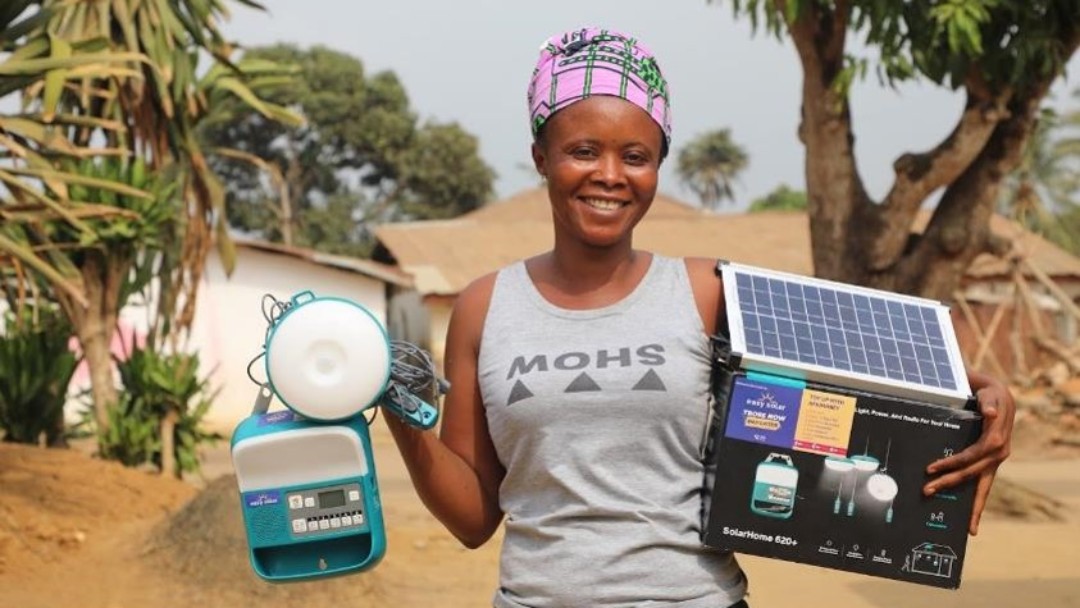
In Africa, around 600 million people still have no access to electricity – this is almost half of the entire population. In order to advance development on the continent and improve the quality of life of its people, access to electricity is urgently needed. However, for reasons of climate protection, this should not be done using fossil fuels, but with renewables, especially since Africa has enormous potential in this area: according to the African Union, the African continent accounts for around 40% of the world’s potential renewable energy sources.
Exploiting this potential is not easy, however, because the continent is large and extensive and therefore it is not possible to set up comprehensive power grids quickly. This makes it all the more important to generate electricity decentrally and create stand-alone solutions.
This is precisely the goal of the FEI (Facility for Energy Inclusion), which was founded in consultation with the African Development Bank. It aims to help establish a decentralised supply of renewable energies via two sister funds, both off-grid (FEI-OGEF) and grid-connected (FEI-OnG). These projects are being implemented in a number of countries including Benin, Côte d'Ivoire, Ethiopia, Ghana, Mozambique, Namibia, Senegal, Uganda, Zambia and others.
The fund grants loans to manufacturers, developers and operators of integrable stand-alone grids and decentralised energy generation solutions in order to promote the production of climate-friendly electricity. For example, in Senegal, Benin and Burkina Faso, marketers are supported by local solar systems (home solar systems). In addition to the direct beneficiaries of the funds, people in the respective areas benefit above all because the electricity produced in this way opens up new development opportunities and options for them.
The fund has existed since 2018. Since then, it has financed and achieved a lot. By the end of September 2024, 31 loans amounting to almost USD 280 million had been committed via FEI-OnG alone, and negotiations for further loans are ongoing. These loans primarily financed new capacities for the production of solar energy. By the end of 2023, this had given one million households and 72 companies access to a clean-source electricity supply.
During the same period, the sister fund FEI-OGEF committed 16 loans amounting to more than USD 95 million. This gave around 6.8 million people access to electricity by the end of 2023.
On behalf of the German Federal Ministry for Economic Cooperation and Development (BMZ), KfW is investing EUR 45 million in the capital of one fund (grid-connected – FEI-OnG) and EUR 15 million in the other (non-grid-connected – FEI-OGEF). Other donors include the African Development Bank, the European Union and the development banks of Austria and Norway.
Via its two arms, FEI offers flexible loans in local currency to companies, marketers and service providers. Their goal: to further expand renewable energies in Africa.
Share page
To share the content of this page with your network, click on one of the icons below.
Note on data protection: When you share content, your personal data is transferred to the selected network.
Data protection
Alternatively, you can also copy the short link: https://www.kfw-entwicklungsbank.de/s/enzBwhKm
Copy link Link copied